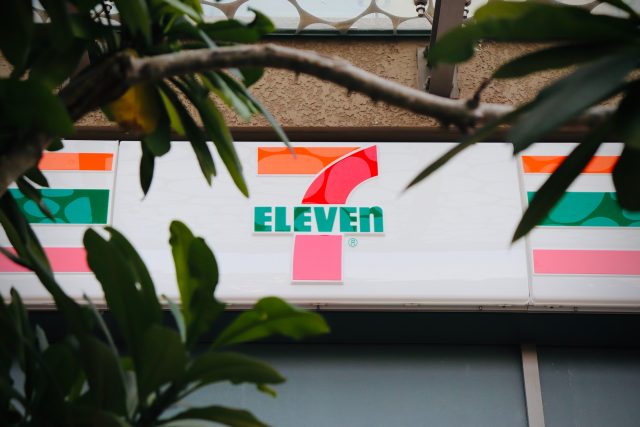AS live theater has yet to return, the Cultural Center of the Philippines’ Virgin Labfest (VLF) theater festival goes online again this year, this time looking into its archive of plays and with a focus on storytelling education.
The Virgin Labfest 2021 will be held online for a second year, with activities and plays streaming for free from Nov. 24 to Dec. 5 on the Cultural Center of the Philippines (CCP), VLF, and Tanghalang Pilipino Facebook pages.
Due to the coronavirus disease 2019 (COVID-19) pandemic lockdown in 2020, that year the VLF looked into the processes and new possibilities of staging and presenting performances for audiences online.
Despite the optimism surrounding the loosening of pandemic restrictions as the year draws to a close, the organizers chose to prioritize the safety of the artists, and hold the festival online again instead of on-site.
For 2021, the festival takes on the theme “Yakap” (embrace) as the festival strives to “embrace” the artistic community as it deals with the pandemic.
“‘Yakap’ is the battle cry for this year’s VLF,” CCP Vice-President and artistic director Chris B. Millado said during an online press conference on Nov. 11.
“We embrace the artistic community as they continue together to strive and endure the terrible effects of this pandemic, [embrace] new possibilities and new narratives shaped by the times, and our audiences with works that have provided comfort, enjoyment, and mindfulness,” Mr. Millado said.
FLASHBACK, FAIR, FELLOWSHIP
The pandemic threw a spanner into the plans for this year’s festival. There were supposed to be live stagings of plays which were going to be filmed for the festival, but then came the Delta variant of COVID-19, and plans had to change. “We had various programming done beginning Jan. 2021, we already created the draft for this year for June. We were ready to go back and film and document those live stagings. But when we were about to film, the Delta variant spread,” VLF festival director JK Anicoche said.
To prioritize health and safety of all involved, the documentation of new plays was postponed.
Since the conditions of the pandemic precluded the staging of new works, the festival has adjusted. Instead, the first component of the festival, called “Flashback,” will feature works from VLF 1 to 15 from the CCP’s extensive archives. Mr. Anicoche said that most of the performances for this year’s festival are previously documented plays from the past festival seasons.
The featured plays for “Flashback” will be divided into themes — works by Em Mendez, works by J. Dennis Teodosio, works by women playwrights, works on the diaspora, works on the Mindanao experience, and, works in the regional language.
“It has been a while since we had a look back at the plays of the VLF which have not been viewed by many. At the same time, it is good to celebrate the 16 years and the plays showcased at the VLF. [Restaging] them would not have been possible live,” VLF founder and former festival director Rody Vera said, in a mix of English and Filipino. “Hopefully, next year, we go back to regular programming to showcase the plays live,” Mr. Vera added.
The second component of VLF is The Playwrights Fair. The sessions are scheduled at 8 p.m. throughout the two-week festival. There will be 11 sessions with playwrights around the country, giving recognition to the works and life of artists and playwrights who died during the pandemic: National Artist for Theater Amelia Lapeña-Bonifacio, Mario “Em” L. Mendez Jr., Carlito “Lito” Casaje; Jose Dennis C. Teodosio; and Manuel “Manny” Pambid.
The Playwrights Fair will also feature current playwrights, their challenges, efforts, and experiences using virtual platforms to cope with the situation in the theater community with COVID. The sessions will also tackle updates about local and US-based theater communities, and they have coped with the pandemic.
Guest speakers include Luna Sicat-Cleto, Layeta Bucoy, Dennis Marasigan, Liza Magtoto, Juan Ekis, Hobart Savior, Lorna Velasco, and Dessa Quesada-Palm.
The third component, the Writinåg Fellowship Program, will be conducted from Nov. 16 to Dec. 5 under the tutelage of award-winning playwright Glenn Sevilla Mas. The Culminating Activity, directed by Dennis Marasigan, will be streamed online on Dec. 5.
“This year is different because in a sense we knew what we were doing in terms of going online. Last year, we really had no idea how to do it. This year is very different because we focus on education. We took the limitations of the situation and we decided that this year we will focus on the playwrights’ fair, on sharing ideas and thoughts and focus on the fellowship program,” VLF production manager Nikki Garde-Torres said about the playwrights fair which is now on its 10th year.
“This is part of embracing the youth, the playwrights, and the audience by giving back by teaching,” Ms. Garde-Torres said in English and Filipino.
Established in 2005, the Virgin Labfest is the premier playwright’s festival in the country, focusing on producing untried, untested, and unstaged works.
For more information and for the schedule of activities, follow VLF on the CCP’s social media platforms, or visit www.culturalcenter.gov.ph. — Michelle Anne P. Soliman


















